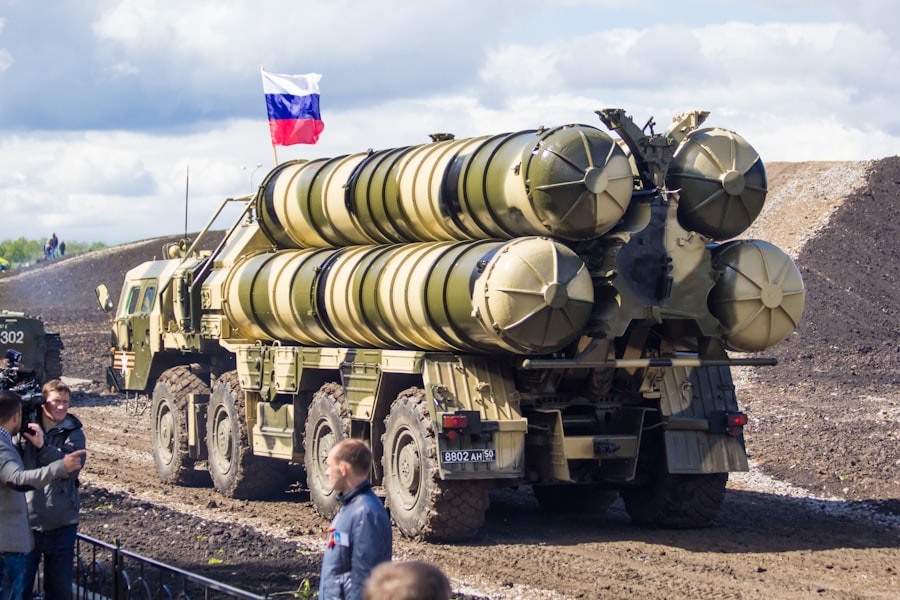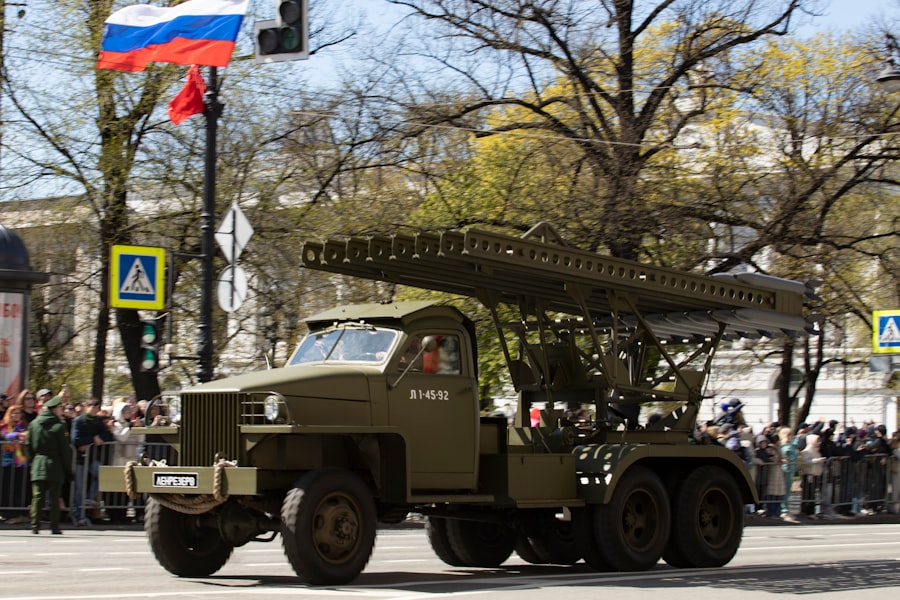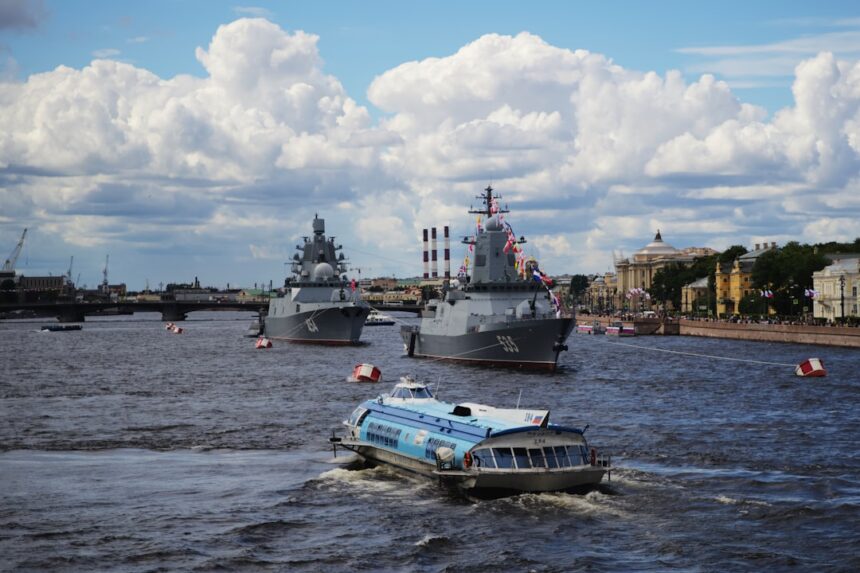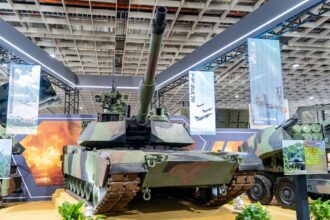The Russian military has long been intertwined with a complex web of black market activities that significantly influence its operations and capabilities. This dependency on illicit trade has emerged as a critical issue, affecting everything from procurement processes to the morale of personnel.
As a result, the Russian military’s reliance on these underground networks raises questions about the effectiveness and integrity of its armed forces. In recent years, the situation has become increasingly pronounced, particularly in light of international sanctions and economic pressures. The black market has not only filled gaps in supply but has also fostered a culture of corruption and inefficiency within the military ranks.
Understanding this dependency is essential for comprehending the broader implications for Russia’s military strategy and operational readiness. The following sections will delve into the historical context, the types of goods traded, and the implications of this dependency on the Russian military’s future.
Key Takeaways
- The Russian military has a significant dependency on the black market for various goods and services.
- The black market in Russia has deep historical roots, dating back to the Soviet era and continuing into the present day.
- The black market plays a crucial role in providing the Russian military with items such as fuel, weapons, and even human trafficking services.
- The implications of black market dependency on the Russian military include compromised security, corruption, and international repercussions.
- Efforts to combat black market dependency in the Russian military have been met with challenges, including widespread corruption and lack of effective enforcement.
Historical Background of the Black Market in Russia
The roots of the black market in Russia can be traced back to the Soviet era, where state control over the economy led to widespread shortages and inefficiencies. During this time, citizens often resorted to informal networks to obtain essential goods that were unavailable through official channels. The collapse of the Soviet Union in 1991 further exacerbated these conditions, as economic turmoil and political instability created fertile ground for black market activities to flourish.
The transition to a market economy was fraught with challenges, leading to a proliferation of illegal trade as individuals sought to navigate the chaos. As the years progressed, the black market evolved, adapting to changing political landscapes and economic conditions. By the early 2000s, it had become an entrenched part of Russian society, with various sectors, including the military, increasingly reliant on these illicit networks.
The military’s struggles with procurement and logistics have made it particularly vulnerable to black market influences. This historical backdrop is crucial for understanding how deeply embedded these practices have become within the Russian military framework.
The Role of the Black Market in the Russian Military

The black market plays a multifaceted role within the Russian military, serving as both a lifeline and a source of systemic issues. On one hand, it provides essential supplies that are often lacking in official channels, such as spare parts for equipment, uniforms, and even food rations. Soldiers frequently turn to these underground markets to acquire what they need for their day-to-day operations, especially when bureaucratic inefficiencies hinder timely deliveries from official sources.
On the other hand, this dependency creates a host of problems that undermine military effectiveness. The reliance on black market goods can lead to inconsistencies in quality and reliability, posing risks during critical operations. Moreover, it fosters an environment where corruption thrives, as individuals within the military may exploit their positions for personal gain.
This duality highlights the precarious balance that the Russian military must navigate as it grapples with its reliance on illicit trade.
Types of Goods and Services Traded on the Black Market
| Types of Goods and Services | Description |
|---|---|
| Illegal Drugs | Narcotics such as cocaine, heroin, and marijuana |
| Counterfeit Goods | Fake products including clothing, electronics, and luxury items |
| Weapons | Firearms, explosives, and other military equipment |
| Human Trafficking | Illegal trade of humans for forced labor, sexual slavery, or commercial sexual exploitation |
| Stolen Goods | Items obtained through theft, burglary, or robbery |
The range of goods and services traded on the black market within the Russian military is extensive and varied. Essential items such as weapons, ammunition, and military-grade equipment are often at the forefront of these transactions. Soldiers may seek out specific types of firearms or munitions that are either in short supply or unavailable through official channels.
This not only raises concerns about accountability but also poses significant risks regarding the proliferation of arms. In addition to weaponry, other goods such as uniforms, medical supplies, and even food are commonly traded on the black market. Soldiers may find themselves purchasing basic necessities that should be provided by their superiors but are instead lacking due to logistical failures.
Services such as unauthorized training or maintenance for military equipment also find their way into this underground economy. The diversity of goods and services available underscores the pervasive nature of black market dependency within the Russian military.
Implications of Black Market Dependency on the Russian Military
The implications of black market dependency for the Russian military are profound and multifaceted. Firstly, this reliance undermines operational readiness by creating inconsistencies in supply chains. When soldiers must turn to illicit sources for essential equipment or supplies, it raises questions about their preparedness for combat situations.
The unpredictability associated with black market goods can lead to critical failures during missions, jeopardizing both personnel safety and mission success. Moreover, this dependency fosters a culture of corruption that permeates military ranks. When individuals prioritize personal gain over institutional integrity, it erodes trust within the organization.
This can lead to a breakdown in discipline and morale among troops, further complicating command structures and operational effectiveness. The long-term consequences of such a culture could be detrimental to Russia’s military capabilities and its standing on the global stage.
Efforts to Combat Black Market Dependency in the Russian Military

In response to the challenges posed by black market dependency, various efforts have been initiated within the Russian military to combat these illicit activities. Leadership has recognized that addressing corruption and inefficiencies is crucial for maintaining operational integrity. Initiatives aimed at improving procurement processes and enhancing transparency have been introduced in an attempt to reduce reliance on black market goods.
However, these efforts face significant obstacles due to deeply entrenched practices and systemic issues within the military bureaucracy. Resistance from individuals benefiting from black market activities can hinder progress, making it difficult to implement effective reforms. Additionally, without addressing broader societal issues related to corruption and economic instability, any measures taken may only yield limited results.
Corruption and its Connection to the Black Market in the Russian Military
Corruption is intricately linked to black market activities within the Russian military, creating a vicious cycle that perpetuates both phenomena. Individuals in positions of power may exploit their authority to facilitate illicit trade or divert resources for personal gain. This not only undermines trust within the ranks but also diverts critical resources away from legitimate military needs.
The connection between corruption and black market dependency is evident in various forms, from bribery to embezzlement. Soldiers may feel compelled to engage in corrupt practices simply to secure necessary supplies or services that should be readily available through official channels. This culture of corruption not only affects operational effectiveness but also tarnishes the reputation of the military institution as a whole.
International Impact of Russian Military’s Black Market Dependency
The international ramifications of the Russian military’s black market dependency extend beyond its borders, influencing geopolitical dynamics and security concerns worldwide. As illicit trade networks thrive within Russia’s military framework, they can inadvertently contribute to global arms trafficking and destabilization efforts in conflict zones. The availability of weapons and military supplies through black markets can exacerbate tensions in regions already fraught with conflict.
Furthermore, international sanctions imposed on Russia have intensified its reliance on black market activities as a means of circumventing restrictions. This has led to increased scrutiny from other nations regarding Russia’s military capabilities and intentions. The interconnectedness of global security means that developments within Russia’s black market can have far-reaching consequences for international relations and stability.
Future Outlook for the Russian Military’s Black Market Dependency
Looking ahead, the future of the Russian military’s black market dependency remains uncertain but fraught with challenges. As economic pressures continue to mount due to sanctions and internal inefficiencies, it is likely that reliance on illicit trade will persist or even grow. The ongoing conflict in Ukraine has further complicated matters, as resource allocation becomes increasingly strained amid heightened military demands.
Efforts to reform procurement processes and combat corruption will be critical in shaping the trajectory of this dependency. However, without significant changes at both institutional and societal levels, it is unlikely that these initiatives will yield substantial results. The interplay between economic conditions, corruption, and military effectiveness will continue to define the landscape of Russia’s armed forces in the years to come.
Case Studies of Black Market Operations within the Russian Military
Examining specific case studies reveals how pervasive black market operations are within the Russian military context. One notable instance involved soldiers purchasing spare parts for armored vehicles through unauthorized channels due to delays in official procurement processes. This not only highlighted logistical failures but also raised concerns about accountability when substandard parts were used in critical operations.
Another case involved soldiers acquiring food rations from black market vendors during deployments when official supplies were insufficient or contaminated. Such instances underscore how deeply ingrained these practices are within military culture and how they can directly impact operational readiness and troop welfare.
Addressing the Challenges of Black Market Dependency in the Russian Military
In conclusion, addressing the challenges posed by black market dependency within the Russian military requires a multifaceted approach that tackles both systemic issues and cultural attitudes toward corruption. While efforts have been made to reform procurement processes and enhance transparency, significant obstacles remain due to entrenched practices and economic pressures. The implications of this dependency extend beyond operational readiness; they affect morale, trust within ranks, and ultimately Russia’s standing on the global stage.
As such, it is imperative for leadership within the military to prioritize comprehensive reforms that address not only logistical inefficiencies but also foster a culture of integrity and accountability. Only through concerted efforts can Russia hope to mitigate its reliance on black markets and strengthen its military capabilities for future challenges.
In recent years, the Russian military’s reliance on black markets has become a topic of increasing concern, as it highlights vulnerabilities in their supply chain and raises questions about the integrity of their procurement processes. An insightful article on this issue can be found on In The War Room’s website, which delves into the complexities and implications of this reliance.




